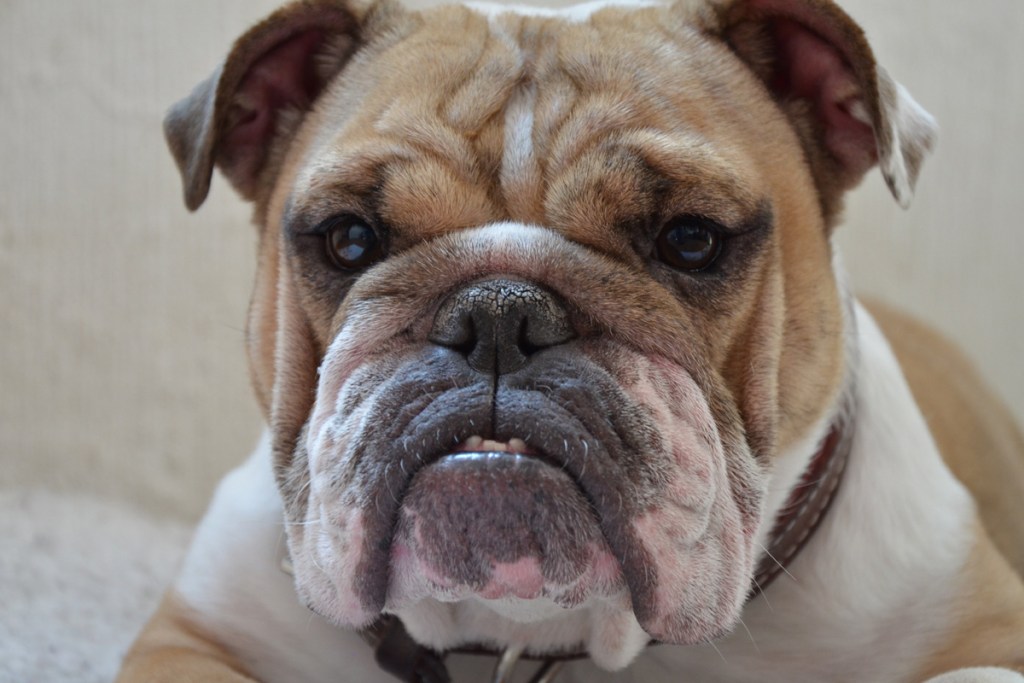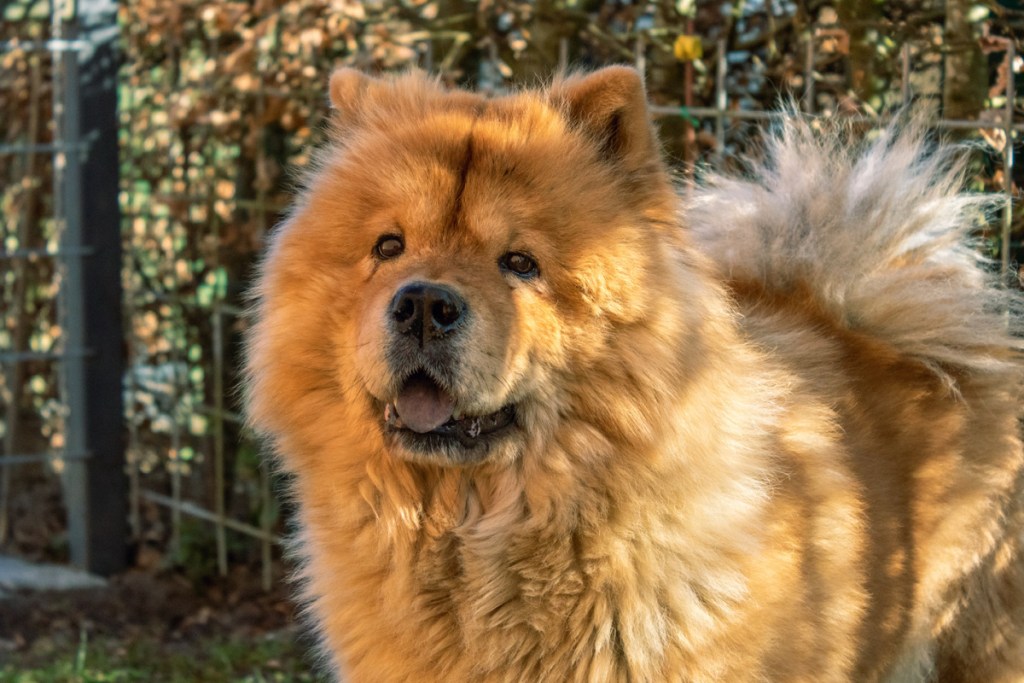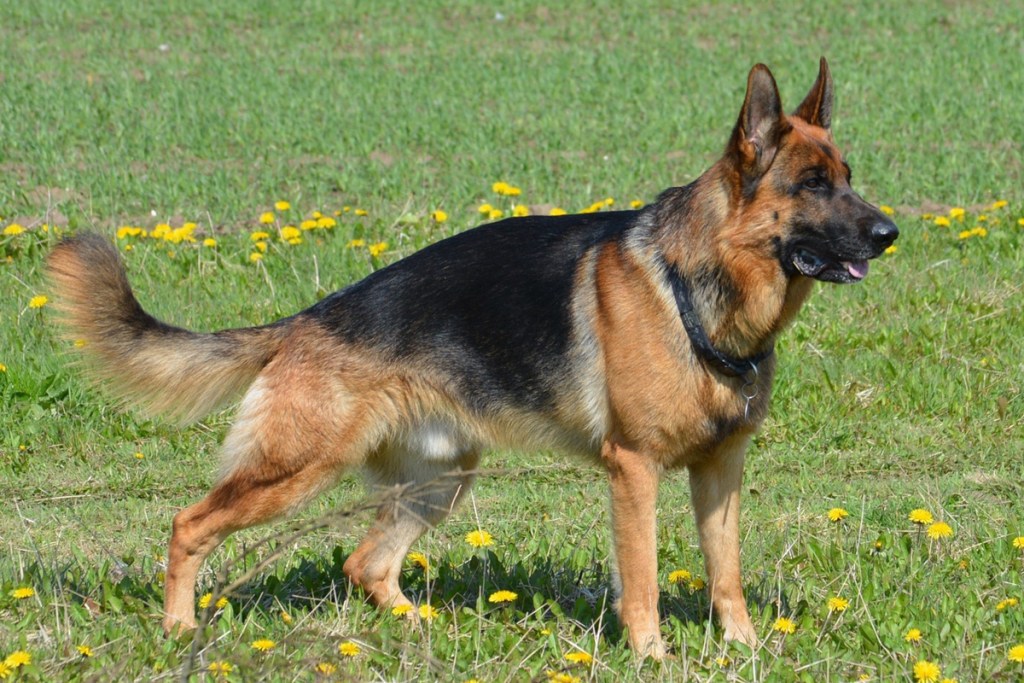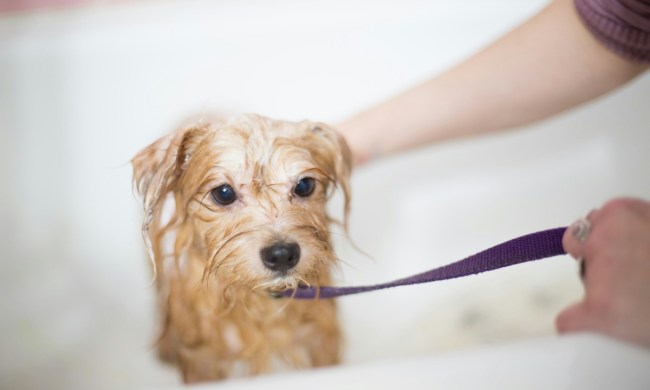According to an article in Scientific American magazine, people have been breeding dogs for certain traits for more than 4,000 years. They may have been looking for a certain type of hunting dog or a companion with a friendly disposition. It’s only in the past two centuries with the rise in popularity of dog shows that people began selectively inbreeding dogs to have specific physical features. Unfortunately, inbreeding has put many of today’s most popular breeds at risk for numerous health issues. The blog Science and Dogs compared photos of popular dog breeds featured in the 1915 book Dogs of All Nations with photos of those breeds today. It’s astonishing to see how certain breeds have changed so much and not always for the better. Aggressive breeding practices, which put dogs at risk of birth defects and genetically inherited diseases, have ruined the health of the following 10 breeds.
The bulldog
In a Washington Post article, Neils Pedersen, a veterinarian at the Center for Companion Animal Health at the University of California at Davis called the bulldog the most “egregious example of getting carried away with oneself in actually designing a dog that’s as far from nature as you can possibly get.” As with all flat-faced breeds, brachycephalic airway syndrome is one of the most common health issues seen in this breed. In severe cases, surgical correction may be recommended. Following is a list of other common health issues:
- Dental disease
- Bone and joint problems, including hip and elbow dysplasia
- Spinal deformities

Basset hound
Basset hounds were originally bred in France and Belgium as a low-build scenting hound used to track rabbits and deer. Today’s bassets have much shorter back legs, longer ears, looser skin, and longer backs. According to VetMD, bassets are prone to major health issues including:
- Osteochondrosis dissecans (a painful joint condition)
- Gastric torsion (bloat)
- Elbow dysplasia
Dachshund
Dachshunds were originally bred as working dogs to chase and exterminate badgers and hunt rabbits and foxes. Today’s dachshunds have longer necks and backs and shorter legs than their working relatives. This puts them at high risk for intervertebral disk disease, the most common cause of spinal cord injury in dogs. Other common health conditions include:
- Acanthosis nigricans (a skin condition unique to dachshunds)
- Hyperthyroidism
- Progressive retinal atrophy
Pug
A century ago, pugs were smaller, had slender bodies, and their faces weren’t as flat. Topping the list of pug health issues today is brachycephalic airway syndrome. Other common health issues include:
- Pug dog encephalitis (a condition causing blindness, seizures, and difficulty walking)
- Eyelid problems
- Skin infections
Cavalier King Charles spaniel
By age 5, half of all Cavalier King Charles spaniels will develop mitral valve disease, a serious heart condition that leaves the dogs susceptible to premature death, according to the Scientific American article. Other common health issues for this breed include:
- Canine syringomyelia (a debilitating neurological disorder)
- Allergies
- Hip dysplasia
Boxer
Boxers were originally bred for endurance and had long muzzles. Today, like other flat-faced breeds, boxers can suffer from brachycephalic airway syndrome. They are also at risk for arrhythmogenic right ventricular cardiomyopathy (also known as boxer cardiomyopathy). According to veterinary specialists, this disease most commonly causes heart arrhythmias that can result in episodes of collapse or fainting and even sudden death. Other common health issues in boxers include:
- Cancer
- Hip dysplasia
- Hypothyroidism
Chow chow
Bred as bird dogs for Chinese aristocrats, original chow chows had straight muzzles. In contrast, the eyes of today’s chow chows are so deep-set that the dogs have limited peripheral vision and suffer from a variety of genetic eye disorders. Other common health issues include:
- Hip and elbow dysplasia
- Gastric torsion (bloat)
- Diabetes mellitus (inability of the body to utilize sugars properly)

Rottweilers
According to veterinary specialists at Embrace Insurance, Rottweilers are one of the dog breeds most affected by hip dysplasia, a genetic deformity. This extremely painful condition often requires hip replacement surgery. Other common health issues include:
- Elbow dysplasia
- Eye problems, including progressive retinal atrophy, cataracts, and eyelid deformities
- Heart problems, including cardiomyopathy and subaortic stenosis, a narrowing of the aorta that carries blood away from the heart
French bulldogs
Substandard breeding practices have led to many of the health issues seen in this popular breed, according to DVM360. Frenchies are particularly prone to brachycephalic airway syndrome. Other common health issues include:
- Cherry eye
- Skinfold dermatitis
- Intervertebral disk disease
German shepherd
A century ago, this breed had a straight back and long, sturdy legs. Today, many German shepherds have a sloped back, causing their hips and knees to come closer to the ground and their hindquarters to be more angular. Osteoarthritis is commonly reported in shepherds, which veterinary experts believe may be caused in part by the sloping back and dropped hindquarters. Other health issues include:
- Hip dysplasia
- Elbow dysplasia
- Degenerative myelopathy (a disease affecting the spinal cord)

Before choosing any new animal companion, remember there are thousands of homeless dogs across the U.S. Many of these are healthy and happy purebred dogs just waiting for someone to love. If you’re determined to buy a purebred puppy, steer clear of puppy mills or backyard breeders, which put profits above the health and well-being of their dogs. In addition to doing your own research, your veterinarian may also be able to provide a recommendation. While there’s never a guarantee that your puppy will be free of health issues, you know you’ll be doing the right thing by supporting responsible breeders.



